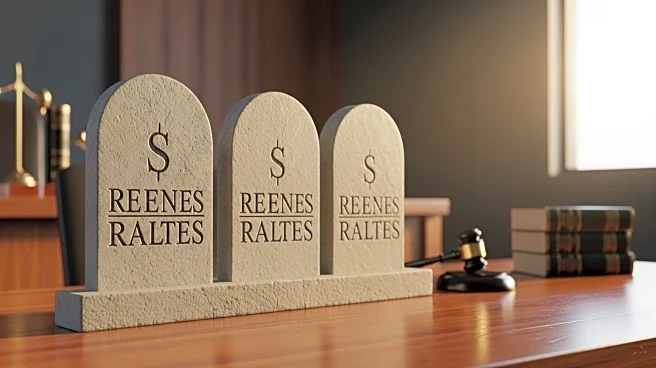What's Happening?
The 5th U.S. Circuit Court of Appeals in New Orleans has decided to review its previous ruling that declared a Louisiana law mandating the display of the Ten Commandments in public school classrooms unconstitutional. This decision comes after a panel of judges initially struck down the law, citing a Supreme Court precedent that invalidated a similar Kentucky law. The law, which requires poster-sized displays of the Ten Commandments in all K-12 schools and state-funded colleges, was challenged by nine families on the grounds that it violates the First Amendment's Establishment Clause. The court's decision to rehear the case en banc, involving all 17 active judges, could potentially reverse the earlier ruling.
Why It's Important?
The outcome of this case could have significant implications for the separation of church and state in the U.S. education system. If the court upholds the law, it may embolden other states to enact similar mandates, potentially leading to a broader national debate on religious expression in public schools. The decision is particularly noteworthy given the conservative composition of the 5th Circuit, which may influence the court's interpretation of constitutional principles. Civil rights groups, including the ACLU, argue that the law infringes on religious freedom, while proponents see it as a way to promote moral values.
What's Next?
A hearing date for the full 5th Circuit has not yet been scheduled. The law remains unenforced due to a previous injunction by a lower court. The decision of the 5th Circuit could set a precedent for similar cases in other states, such as Texas and Arkansas, where similar laws have been blocked. Stakeholders on both sides are preparing for a potentially lengthy legal battle, with significant public and political interest expected to influence the proceedings.
Beyond the Headlines
This case highlights the ongoing tension between religious expression and secular governance in the U.S. education system. It raises questions about the role of religion in public spaces and the interpretation of the First Amendment. The decision could also impact future legislative efforts to introduce religious elements into public institutions, potentially reshaping the legal landscape regarding religious freedom and government endorsement of religion.








